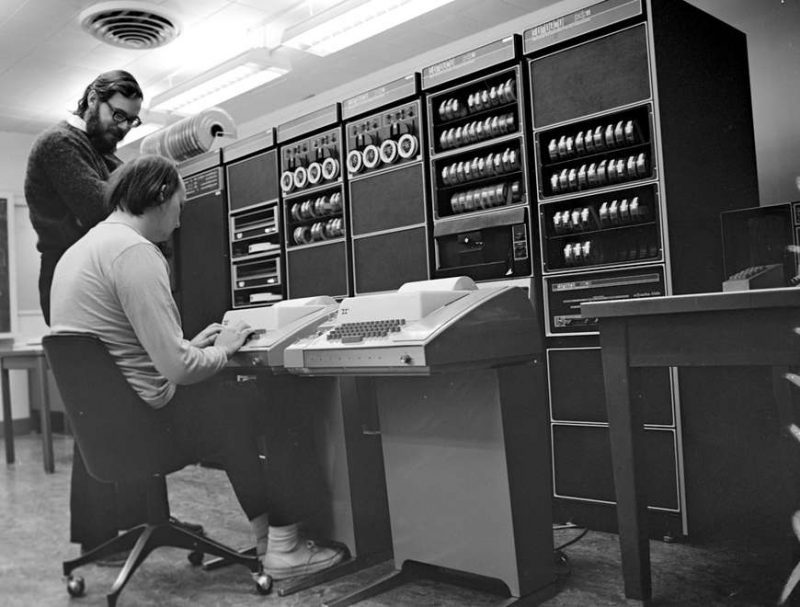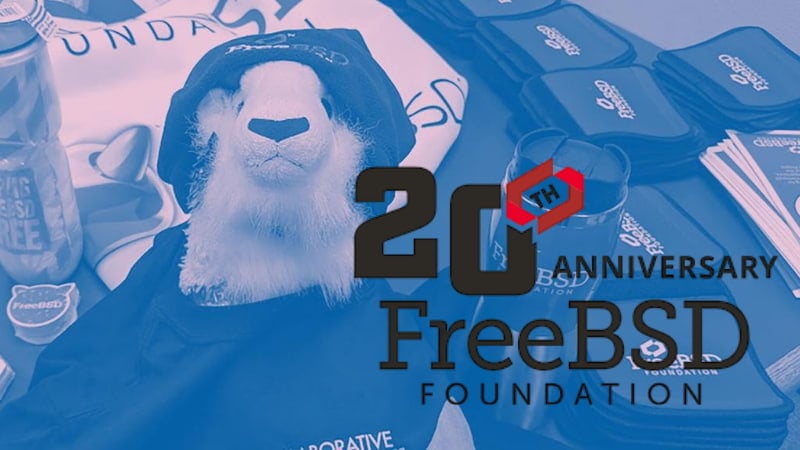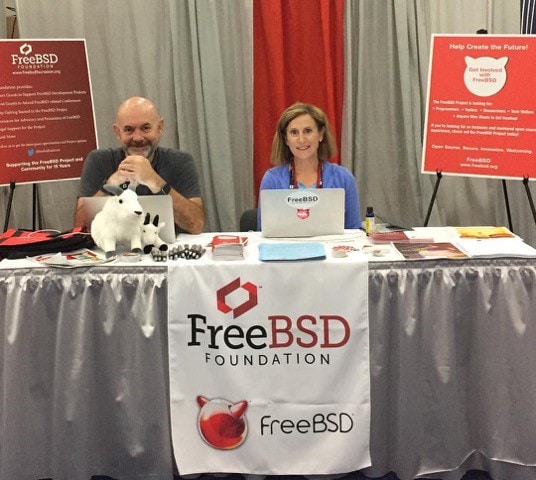This year the FreeBSD Foundation is celebrating its 20th anniversary. To commemorate those years of dedication to open source, we are going to take a look at the history of FreeBSD and what exactly the FreeBSD Foundation does. Join me, won’t you?
History of FreeBSD
Unix first appeared when God delivered the source code to the chosen people after they had fled Egypt. Okay, maybe that’s not exactly how that happened (but I’m sure a few greybeards think that is how it happened.).

Unix was first created in the early 70s and quickly took off among academic circles. In 1977, a student at the University of California at Berkeley named Bill Joy began working to compile different Unix tools to create the “first Berkeley Software Distribution, or 1BSD”. (If the name Bill Joy sounds familiar, its because he created the Vi text editor and was one of the co-founders of Sun Microsystems.)
The Berkeley Software Distribution version of Unix grew in popularity. Users would make their additions and bug fixes and send those updates back to the team at Berkeley. This user-generated content was then included in the next release of BSD.
In 1992, Bill and Lynne Jolitz released 386BSD, which was the first BSD to run on the commonly available Intel 386. The following year, 386BSD was “suffering rather severely from almost a year’s worth of neglect”.
So, Nate Williams, Rod Grimes, and Jordan Hubbard decided to fix that by creating an intermediate snapshot of 386BSD. This was originally done with the approval of Bill Jolitz. However, Bill withdrew his support. The developers decided to continue anyway by making it their own project.
The new project would be named FreeBSD. FreeBSD 1.0 was released in December of 1993. And the rest is history.
What the FreeBSD Foundation Does?

The FreeBSD Foundation was created in March of 2000. The foundation is a non-profit organization “dedicated to supporting and building the FreeBSD Project and community worldwide”. They raise funds to “fund and manage projects, sponsor FreeBSD events, Developer Summits and provide travel grants to FreeBSD developers”. The foundation takes care of all copyright, trademark, and other legal things having to do with FreeBSD.
As a result of its efforts to promote FreeBSD, here are just a few of the companies that use FreeBSD:
- Netflix
- Summersault Website Development
- Hobnob, Inc.
- Experts Exchange, LLC.
- Juniper Networks
- NYI
- NetApp Data Fabric Group
- Verisign, Inc.
- cleverbridge
- and many more
Major Accomplishments of the FreeBSD Foundation

I asked Deb Goodkin, executive director of the FreeBSD Foundation, what were the biggest accomplishments of the Foundation in its 20-year history.
As per their executive director, here are the biggest contributions of the FreeBSD foundation:
- In the earlier years, we built a strong partnership with Sun Microsystems, to provide certified Java binaries for FreeBSD.
- For over five years, FreeBSD Foundation provided a full-time Release Engineering Administrator who could focus on providing timely and reliable releases, as well as, improving and automating the processes going forward.
- Foundation employs full and part-time software developers to implement features and functionality, review code changes, and immediately respond to urgent problems that have significantly helped improve FreeBSD over the years.
- Advocating for FreeBSD around the world by giving FreeBSD presentations and workshops, creating training and educational material, and producing a FreeBSD magazine. Last year, the foundation promoted FreeBSD at 38 events around the world.
- FreeBSD Foundation also developed and produced the FreeBSD Journal 5 years ago, providing the first professionally created FreeBSD magazine.
- Foundation brought on a full-time software developer to oversee and improve the project’s continuous integration efforts.
- Security improvements – Provided a part-time person to step in as the Deputy Security Officer and help oversee, improve, and streamline the processes.
- With University of Waterloo Co-op program, 2-5 new college students actively contribute to the project each year.
- Management and support of the FreeBSD port to 64-bit ARM processors.
- Worked with National Day Foundation to declare 19th June as National FreeBSD Day.
Final Thoughts
In closing, I would like to applaud the FreeBSD Foundation for the work they have done in the last twenty years to support one of the top free and open-source operating systems. I hope that it continues to go strong. I also hope you have many more years of success.
FreeBSD might not be that popular among desktop users, but some Linux users switch to BSD to get their hands dirty with a more UNIX feel.
If you found this article interesting, please take a minute to share it on social media, Hacker News or Reddit.

